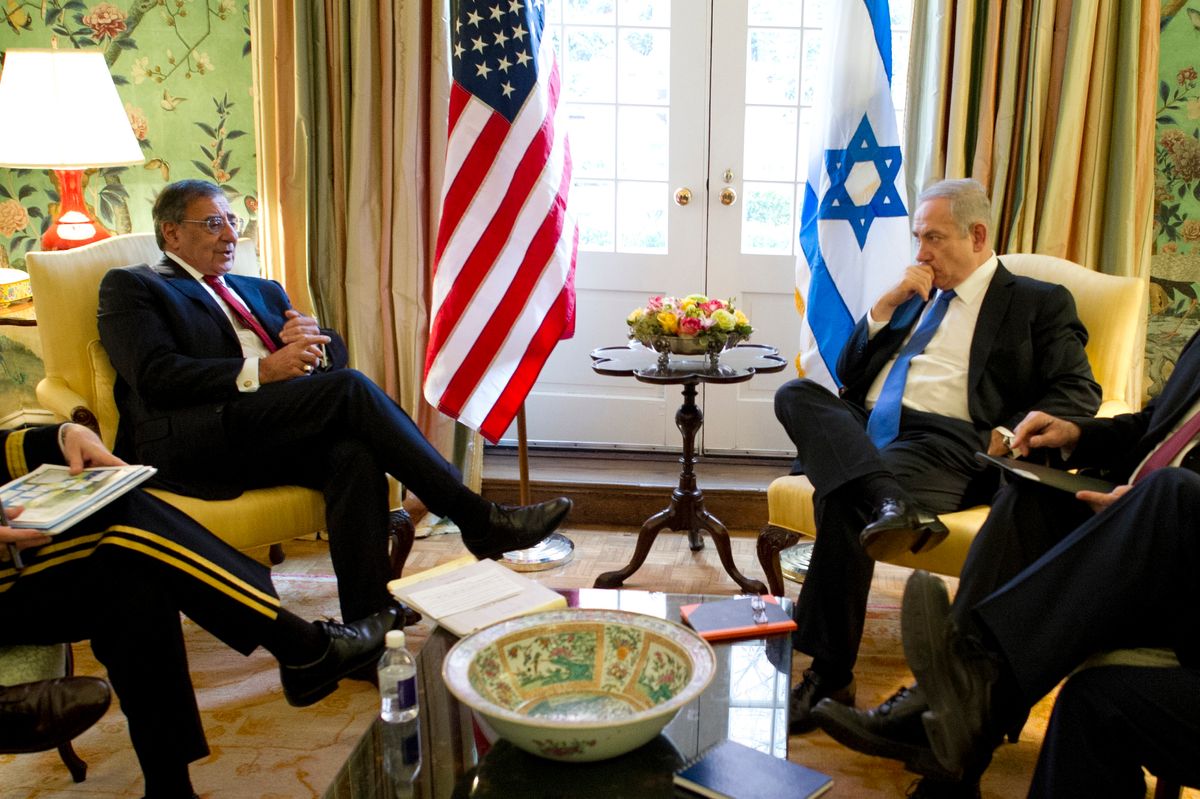Making the US a True Partner

MATTHEW SCHWEITZER — The complexity of the Arab-Israeli environment demands that the US accepts a role as a cooperative member of an international community seeking equitable peace, not as the sole leader.
Originally published at The Risky Shift, where Mr. Schweitzer is a contributing author.
The United States’ role in the Arab-Israeli conflict has been the source of widespread debate, most of it centered on the extent to which Washington can pressure the Palestinians towards a resolution. Yet, these arguments skirt around a crucial element of the continuing imbroglio: America is and will never be the idealized arbiter of Mideast peace. The sooner Washington understands this reality, or at least publicly admits it, the closer a sustainable resolution will become.
The United States is a staunch ally of Israel. This friendship is an inescapable fact. Total bilateral aid from Washington to Jerusalem has increased throughout the Obama Presidency, rising from $2,423 million in 2008 to a projected $3,115 million in 2013. Nearly all these funds are for Israeli military development, and nearly 50% of Obama’s 2010 budget for foreign military assistance — $2.8 billion — was appropriated to Israel. This level of funding has been maintained, if not enlarged. In contrast, US aid to the West Bank and Gaza has averaged just over $600 million since 2008.
These illustrative numbers underscore a far deeper, almost spiritual friendship between the Israel and the US, forged in the years after the Second World War and since fueled by the powerful pro-Israel lobby in Washington. The character of this alliance is unique, and has shaped the region. Israeli policy is founded on the recognition of US support, which is nearly unconditional, and Jerusalem would not be capable of its military operations in Gaza or Lebanon, for example, without American aid.
Of course, this friendship has been the source of much criticism from across the political spectrum. How, many ask, can anyone expect the US to be an honest broker of peace, as it proposes to be?
The answer to this question is: they cannot. It is fully within Washington’s purview to foster a powerful alliance with Israel. Such a friendship is not wholly unprecedented, as similar aid was provided to Great Britain in the 1930s. From a strictly political standpoint, sovereign nations are perfectly justified in seeking and maintaining strong defensive relationships against perceived threats. It is the implications of this aid on the peace process that worries those advocating a bilateral, egalitarian resolution.
Yet, rather than embarking on the Sisyphean task of restructuring the deeply entrenched US-Israeli relationship, the far more constructive solution would be to recognize the reality for what it is. By considering the United States as another partisan actor in the Arab-Israeli matrix, the international community might be better able to understand the true avenues and barriers to peace. As long as Washington occupies the dual role of negotiator and unwavering ally, Israel will not budge from its present course. It is not Washington’s support putting the peace process on hold, but rather the way in which this process is defined by it.
The US need not cut its bonds to Israel, but it must not disguise them. If Washington could enter into a truly multilateral negotiating body — one in which both the Israelis and the Palestinians are equally represented and considered — it could contribute to a far more sustainable solution: International, not unilateral, peace. Both the US and Israel have a real chance to achieve such a solution, as Palestinian Authority President Mahmoud Abbas makes his case for Palestinian independence at the United Nations. For a peace process founded nearly entirely on US government opinion, the likely American and Israeli opposition to statehood would deal a crippling to Abbas’ chances. Within these parameters, the framework for reconciliation simply does not exist.
Only by shifting this reality can the two-state solution — or any solution amenable to both parties’ goals — work. The complexity of the Arab-Israeli environment demands that the US accepts a role as a cooperative member of an international community seeking equitable peace, not as the sole leader.


